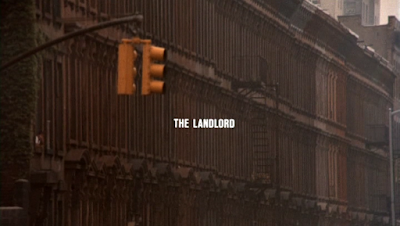NOTES ON THE LANDLORD AND LEE GRANT
Hal Ashby’s The
Landlord, made in 1970, is probably
the best movie of the 1970s not to be widely known by younger audiences, and
even by some older audiences whose appreciation of the last great era of
American moviemaking needs to be expanded beyond go-to classics like The Godfather and Chinatown and Taxi Driver.
The Landlord is also notable for its cast, with great turns from undervalued character actors like Walter Brooke, Mel Stewart, Will MacKenzie, Susan Anspach, Marki Bey, and Beau Bridges in the titular role as Elgar, a clueless rich kid who, at 29 years old, rejects the influence of his moneyed parents and decides to turn a Park Slope, Brooklyn tenement into his personal reclamation project. But as good as Bridges is—and he’s terrific-- three women in particular form the beating heart of The Landlord’s satiric and socially conscious heart.
The pain and longing at the foundation of
Diana Sands’s performance as Fanny, the young and very married
mother whose prickly attraction to Bridges forms the nexus of the movie’s
push-pull commentary on social and cultural reality. Sands is achingly good
here, not only for the dimension she brings to her role and the movie at large,
but also because of the knowledge that her own life and the potential within it
for more great work on this level would be cut short by cancer three years
after The Landlord was released.
Then there’s Pearl Bailey as Marge,
the tenement’s central matriarchal figure who, after a significant measure of
resistance, helps Elgar establish his presence among the naturally suspicious
tenants and who treats him with unexpected respect, like the mother he wishes
he had. Bailey was at the time, and today remains more well-known for her
talents as a singer, but The Landlord
underlines her great comedic timing and force. She was a master of the raised
eyebrow, a talent which really gets a workout in a scene with Elgar’s actual
mother, Mrs. Enders, played with customary insouciance and comic flair by Lee Grant, in which the two of them
trade decorating ideas while getting sloshed on Marge’s pot liquor, that is a
genuine comedy classic.

Grant enjoyed a wonderful period here as a near-peerless American character actress, which would peak with an Oscar for her work in Ashby’s Shampoo. In The Landlord she’s screamingly funny as well as entirely likable and empathetic in her desire to understand her son’s wayward impulses, which makes the gradual takeover of her prejudicial anger and wounded pride all the more powerful.
Lee Grant is one of those actresses who has always made me sit up and take
notice. She could be relied on to send a signal that her arrival in a scene meant
that the fun was about to start, that something, anything, could happen, and
whatever it ended up being was probably going to be well worth watching. Consequently,
I’ve always been a little bit in love with her unique mix of sweetness,
brashness and potential fury, and when I was lucky enough to meet her at a
screening of The Landlord and Shampoo a couple of years ago it was
something of a nerve-wracking occasion for me, at least at first. As I
nervously approached her bearing a copy of her autobiography, I Said Yes to Everything, I fumbled
slightly and told her, "I have to confess something to you."
Have I mentioned that Lee Grant is the greatest actress of all time?!
***********************************

























No comments:
Post a Comment